An enabling environment for inquiry learning
Home › Forums › Effecting change and the roles of the subject teachers and teacher-librarians / librarians in inquiry › An enabling environment for inquiry learning
- This topic has 1 reply, 1 voice, and was last updated 4 years, 12 months ago by
 Darryl Toerien.
Darryl Toerien.
-
AuthorPosts
-
26th February 2021 at 5:05 pm #37133
FOSIL Group member David Harrow, Headmaster of AKS Lytham, invited me to talk to his colleagues about FOSIL. In our conversation, David asked what a school that had gone “maximum FOSIL” might look like. This is a deeply interesting question that I have begun to put thought into.
In the spirit of freely sharing our individual journeys so that we may achieve together what we are not able to achieve on our own, what follows is my thinking around this question, but with an immediate view to sharing about FOSIL with colleagues from AKS Lytham on Tuesday (2 March).
—

DILBERT © Scott Adams. Used By permission of ANDREWS MCMEEL SYNDICATION. All rights reserved.
Our increasingly global village is undergoing a paradigm shift, which is always traumatic. Tragically, I don’t need to provide examples – you can pick your own.
Formal education – schooling – however, is facing a paradigm shift without a clutch, which will be more or less devastating for our children.
This may seem somewhat apocalyptic, but as David Snyder prophetically wrote in 2017, post-factuality is pre-fascism, and I have a nephew and 2 nieces growing up in Florida, and a son growing up in England.
—
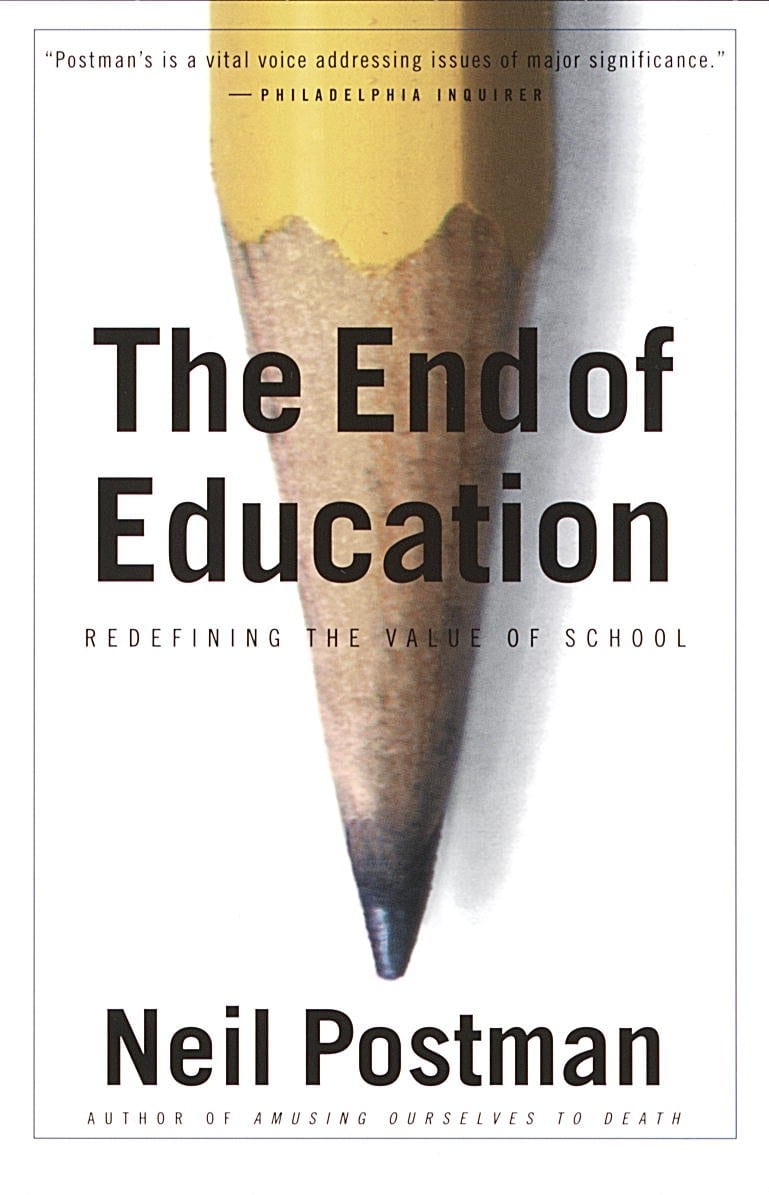
Of The End of Education (1996), Neil Postman writes: “By giving the book its ambiguous title, I mean to suggest that without a transcendent and honorable purpose schooling must reach its finish, and the sooner we are done with it, the better. With such a purpose, schooling becomes the central institution through which the young may find reasons for continuing to educate themselves” (pp. x-xi).
The end of education must be the beginning of a discussion about its means.
—
Inquiry as a worthy end of education.
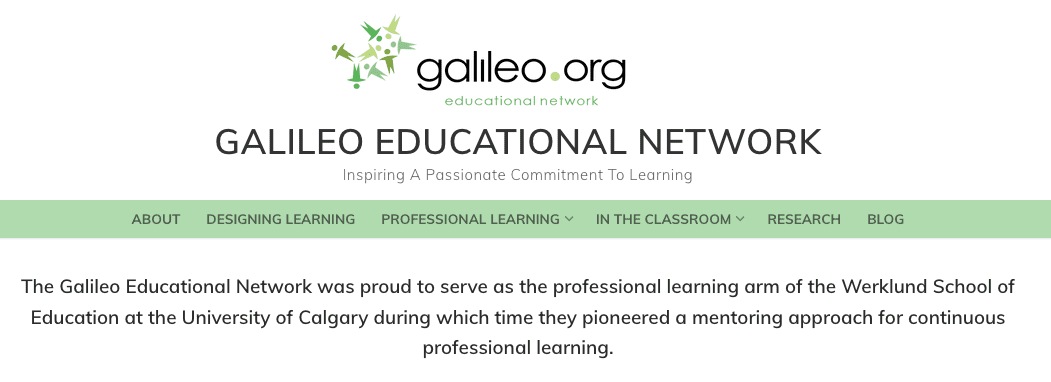
“Inquiry is a dynamic process of being open to wonder and puzzlement and coming to know and understand the world. As such, it is a stance that pervades all aspects of life and is essential to the way in which knowledge is created. Inquiry is based on the belief that understanding is constructed in the process of people working and conversing together as they pose and solve the problems, make discoveries and rigorously testing the discoveries that arise in the course of shared activity.” (GEN)
Inquiry is process and stance, both of which need to be developed.
—
Expanding this end of education.
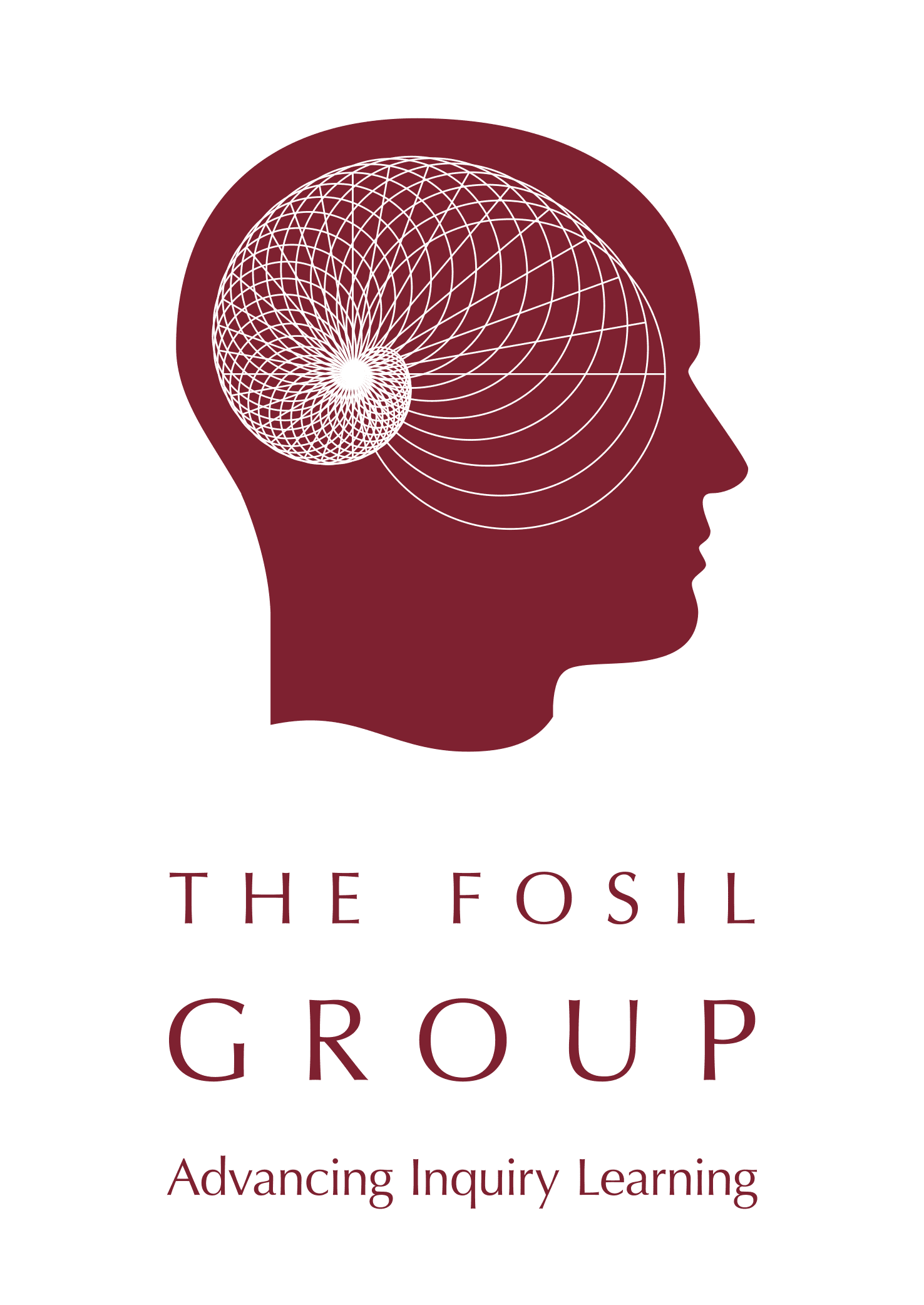
“Inquiry is a dynamic process and stance aimed at building knowledge and understanding of the world and ourselves in it as the basis of responsible participation in community” (Stripling & Toerien, 2020).
—
This end requires a sound instructional model/ framework of the inquiry process, for example, FOSIL.
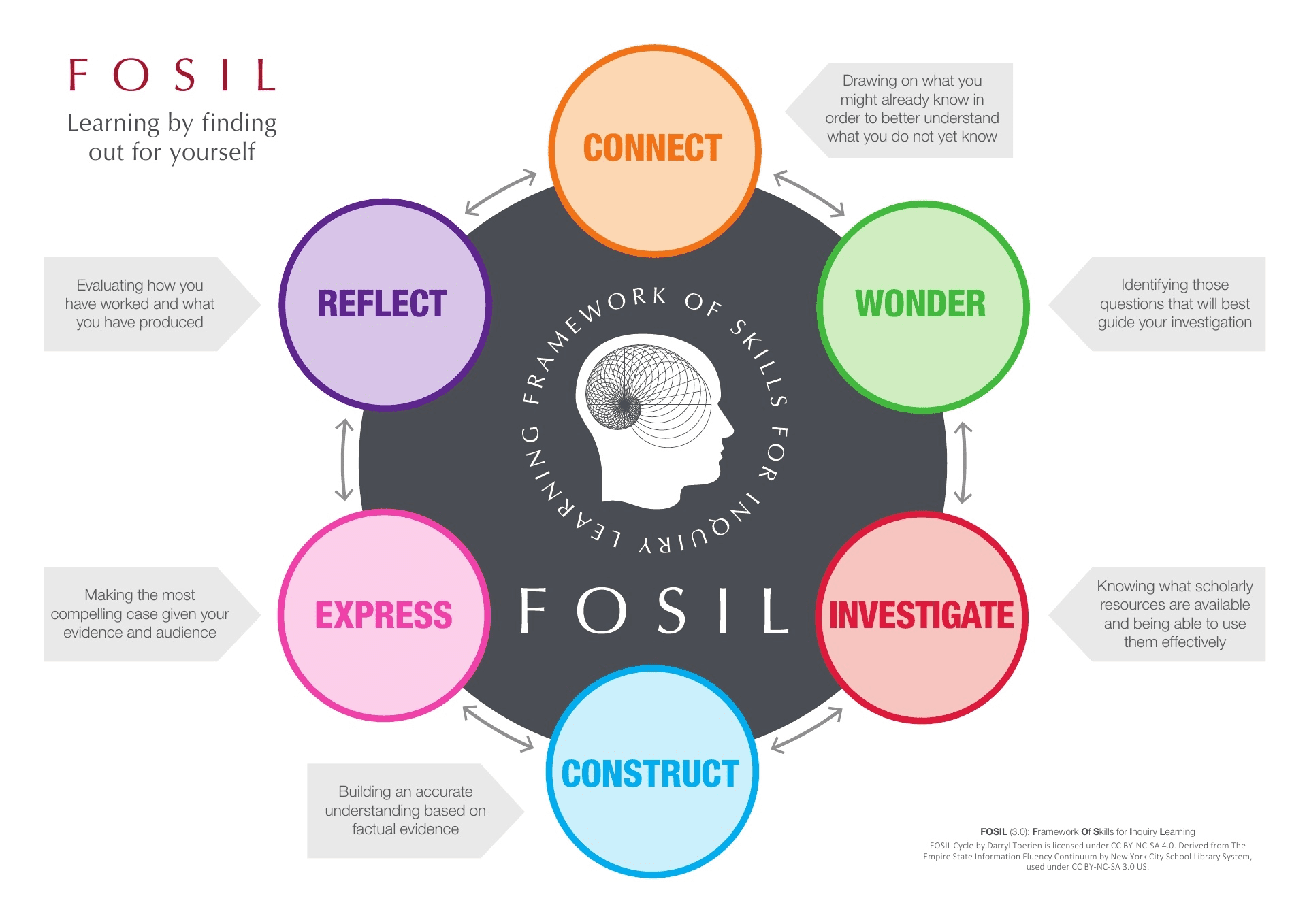
This is relatively easy, but only because we are building on the work of others. The FOSIL model, for example, was developed in 2011, but it is based on Barbara Stripling’s model, which was developed in 2003, but is itself the logical outworking of the publication of Research as a Thinking Process and the REACTS Taxonomy of Thoughtful Research in 1988.
—
This end further requires a PK-12 (Reception-Year13) continuum/ framework of inquiry skills – metacognitive, cognitive, affective/ emotional and social – many of which are IT-dependent by definition or use.
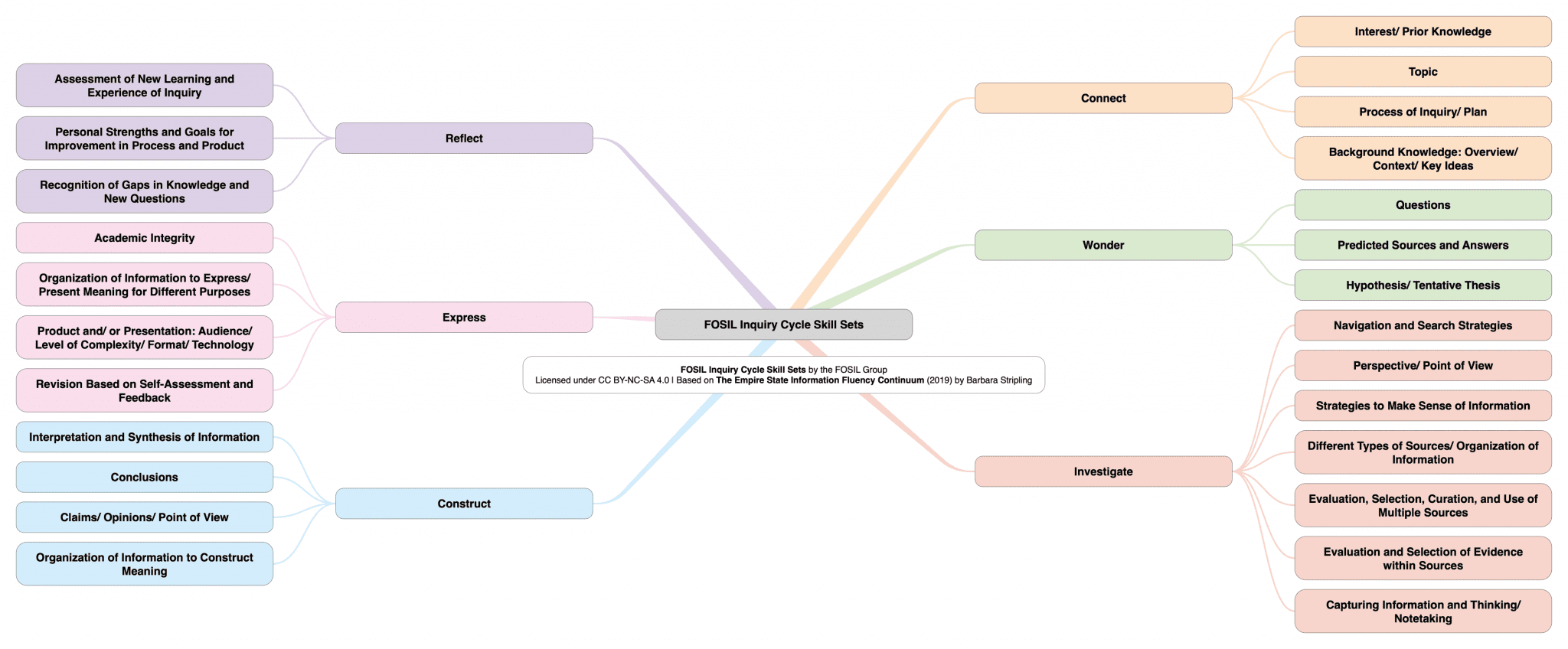
This, again, is relatively easy, and for the same reason. The Empire State Information Fluency Continuum (ESIFC) that FOSIL is based on was initially developed as the NYC Information Fluency Continuum in 2009, endorsed as the ESIFC in 2012, and reimagined in 2019 “to adapt to the changing information, education, and technology environments, as well as the increasing diversity in our student populations”.

—
More challengingly, this end further requires a pedagogical stance, which requires structuring teaching and learning around the systematic and progressive development of these skills within the stages of the inquiry process and in the context of content area learning.
If the engineering adage is true, and there is no reason to doubt it, that your system is perfectly designed to achieve the results that you are getting, then this end of education likely ends here.
However, should this end of education prove to be a beginning, then it further requires what John MacBeath, writing about independent learning, termed an enabling environment.
—
The Community of Inquiry as an enabling environment for a community of inquiry.
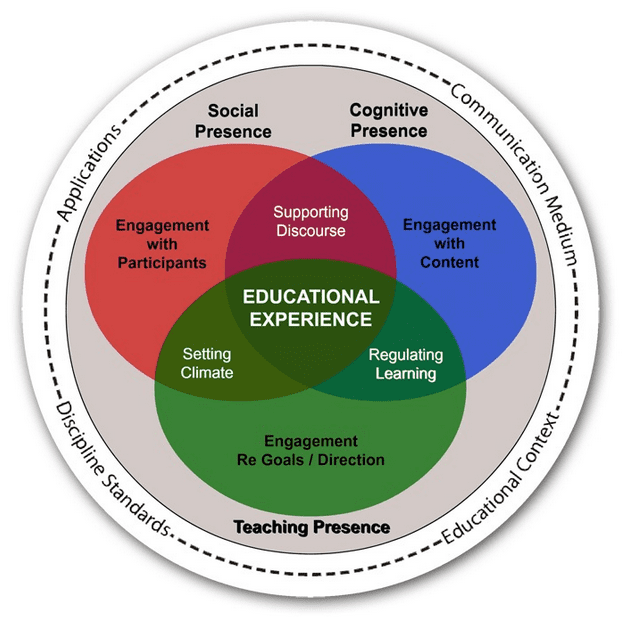
Barbara Stripling recently drew my attention to the Community of Inquiry (CoI), which is a “theoretical framework that represents a process of creating a deep and meaningful (collaborative-constructivist) learning experience through the development of three [essential] interdependent elements [of an educational experience]: social, cognitive and teaching presence.
- Social presence is “the ability of participants to identify with the community (e.g., course of study), communicate purposefully in a trusting environment, and develop inter-personal relationships by way of projecting their individual personalities.” (Garrison, 2009)
- Teaching presence is the design, facilitation, and direction of cognitive and social processes for the purpose of realizing personally meaningful and educationally worthwhile learning outcomes (Anderson, Rourke, Garrison, & Archer, 2001).
- Cognitive presence is the extent to which learners are able to construct and confirm meaning through sustained reflection and discourse (Garrison, Anderson, & Archer, 2001).
The Community of Inquiry holds great promise as an enabling environment, but its context need to be explained, which I will do later.
27th February 2021 at 4:19 pm #37166While it is true that we all operate within a number of externally and internally imposed constraints, it is also true that we make time for what we truly value. This tension is captured well in the concluding paragraph of the very interesting Inquiry vs direct teaching for interdisciplinary STEM, by Professor Russell Tytler (9 August 2019), Chair of Science Education at Deakin University:
Direct teaching advocates the gradual ceding of control to students after they have been taught techniques, and monitoring of their work, rather than our staged process of exploration, invention, evaluation and revision. The payoff, we argue, is that students come to know the disciplinary ideas in richer ways. We have found, however, that the approach requires of teachers both significant knowledge of the science and mathematics, and command of a pedagogy involving negotiation and refinement of student ideas, compared to ‘telling’. It also takes more time. However, if we are serious about developing STEM skills for interdisciplinary problem solving, we argue there are no shortcuts.
It is important to note that Tytler is speaking about students at school, and that this tension is obviously not limited to STEM.
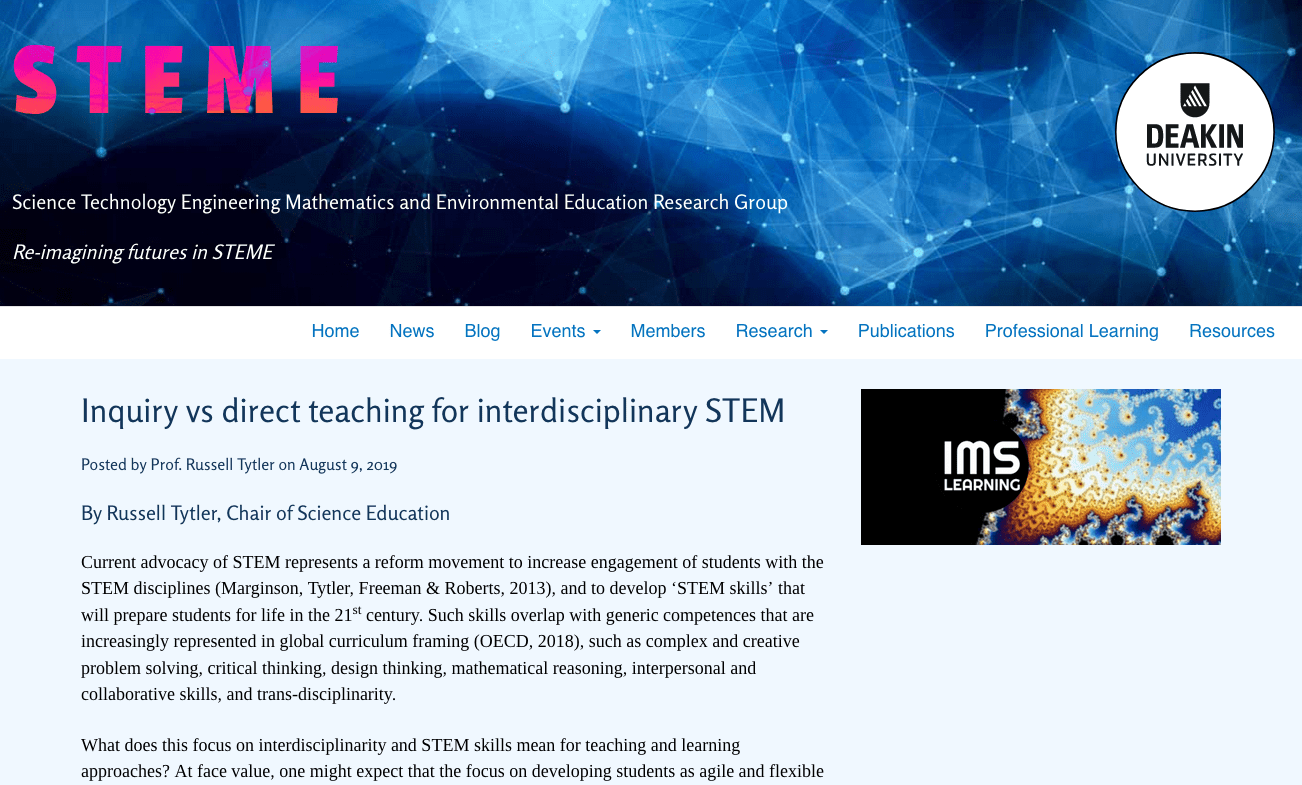
-
AuthorPosts
- You must be logged in to reply to this topic.


